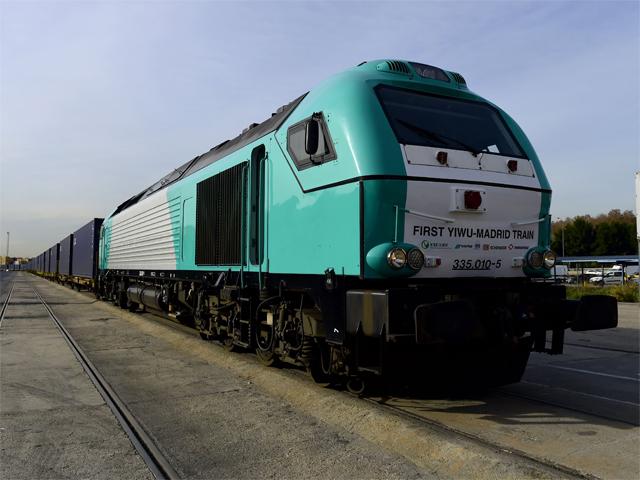A train of consumer goods has successfully completed the world’s longest railway route for the first time, travelling 8,000 miles from China to Spain in 21 days, and potentially opening a new chapter in East-West trade that started with the ancient Silk Road.
Departing Yiwu, a Chinese city famous for producing and distributing consumer goods on November 18th with a cargo of toys and tools it arrived in Madrid yesterday. Although a similar service already exists and regularly takes long trains of produce between China and Germany, Madrid has become an important logistical hub in Europe for exporting to Africa and South America, and could take trade off the many ships that take containers around Africa to Europe and beyond.
Departing China, the train of forty containers went through Kazakhstan, Russia, Belarus, Poland, Germany, and France before reaching Madrid.
Once unloaded the train will return directly to China, carrying European produced luxury goods including wine, olive oil and cured ham that will command a premium in the East, reports The Local.
Although sending the containers by train overland has the beneficial effect of producing less pollution than moving them by ship, more importantly freight by rail is quicker and cheaper, and the achievement of a constantly navigable line of steel rails that nearly spans the whole of Eurasia could be significant to global commerce. Presently plans only exist to run a return service once a fortnight, however if the idea grows it could offer serious competition to sea and air freight.
Speaking at a ceremony to welcome the train to Spain after it’s journey, Li Qiang, the governor of Zhejiang province where the journey began, said the route was important to “implement the strategy of developing a new ‘silk road”. The silk road was a lucrative network of trade routes between the West and East in the ancient world, and the line this train has taken closely resembles one of the routes plied that went around the Black Sea 2,000 years ago.
Although many of the overland routes that took goods at least as far as the Mediterranean from India and China fell into abeyance after trade by sea carried by increasingly large and reliable ships became commonplace, and most importantly cheap, this could begin to reverse to process.

COMMENTS
Please let us know if you're having issues with commenting.